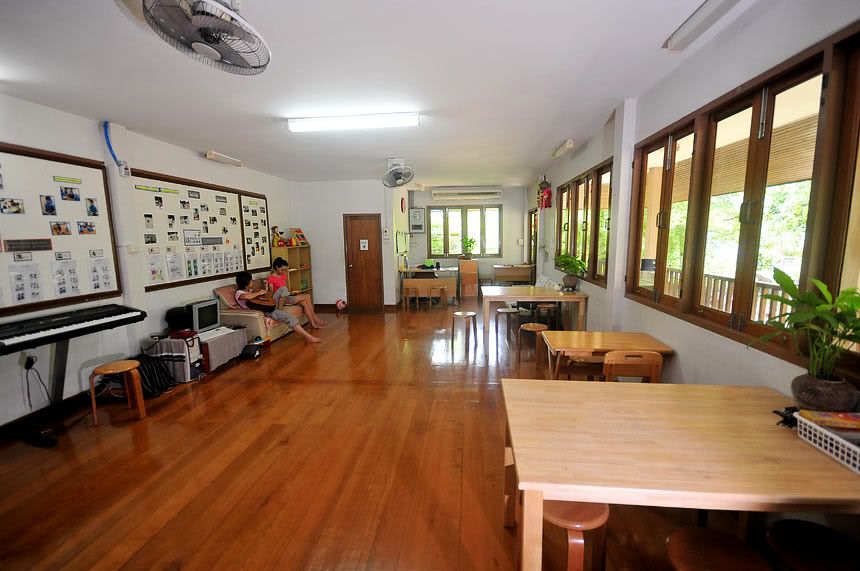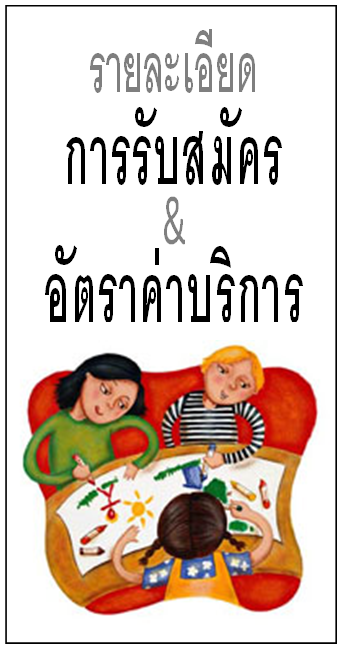IEP... คืออะไร?

"...เราอาจเปรียบเทียบ IEP ได้ราวกับเป็น Road Map ที่ถูกสร้างขึ้น สำหรับเด็กพิเศษแต่ละคนโดยเฉพาะ เพื่อช่วยให้พวกเขาสามารถเดินทางผ่านประสบการณ์ต่างๆ ที่ถูกจัดวางไว้ ในแต่ละขั้น แต่ละตอน ตามลำดับ อย่างมีเหตุมีผล อย่างเหมาะสม และสมดุล ในที่สุดเด็กๆ ทุกคนจะบรรลุถึงเป้าหมายทางการศึกษาอย่างมีวุฒิภาวะ และมองตัวเองอย่างผู้ที่ประสบความสำเร็จ..."
FAQ คำถามที่ถามบ่อย

การเลือกโรงเรียนสำหรับเด็กพิเศษ
"...ถึงเวลาขานรับการกลับมาของหน้าฝนอีกครั้ง เมื่อรอยต่อแห่งฤดูกาลได้พัดพาให้ฤดูแล้งผ่านพ้นไป ชักนำฝนแรกให้โปรยปรายพร่างพรมนำความชุ่มชื้นมาสู่ผืนแผ่นดินอีกครา อีกไม่นานเหล่ามวลดอกไม้ก็จะเริ่มผลิดอกบานสะพรั่ง..."
นี่เป็นเวลาของการเปลี่ยนแปลง อาจบางทีเช่นเดียวกับพ่อแม่ของเด็กอีกหลายๆ คน ที่กำลังมองหาทางเลือก มองหาโรงเรียนสำหรับเด็กพิเศษอย่างลูก
รวมภาพฝัน... วันฟ้าสวย
เปรียบดั่งเช่นการเดินทางไกล ที่เราจะพบว่า มีเรื่องราวต่างๆ มากมายให้ค้นหา มีอุปสรรคที่ต้องฟันฝ่า รวมถึงยังมีความยากลำบากที่ท้าทาย แต่ในขณะเดียวกันก็ช่วยหล่อหลอมจิตใจให้แข็งแกร่งได้เช่นกัน
ทุกวันนี้ เด็กๆแห่งบ้านเพียงตะวันฯ ยังคงอยู่บนเส้นทางของพวกเขา มีความสุขกับภารกิจต่างๆ ที่ได้รับมอบหมาย ยังคงฝึกตน และมุ่งมั่นเพื่อให้ถึงจุดหมายปลายทาง วิธีการเช่นนี้ไม่ง่ายนัก แต่ได้ผล
นี่เป็นภาพบางส่วนที่พวกเขาช่วยกันเติมเต็ม และบันทึกไว้เป็นความทรงจำที่ดีที่มีร่วมกัน ย้ำเตือนให้เราทุกคนเห็นถึงคุณค่าของคำว่า "มิตรภาพ" ว่ามีความหมายเพียงใด
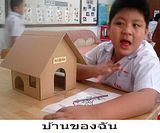
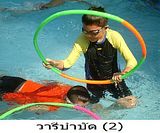
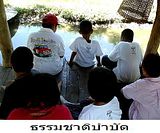
กาลครั้งหนึ่ง... ที่บ้านเพียงตะวันฯ
| ราวลูกปัดเลื่อมลายหลากหลายสี นำมาร้อยมาลัยรักทักทอใจ |
ดุจมณีรุ้งแก้วแววสดใส สืบสายใยสู่ฝันวันฟ้างาม |
| ประพันธ์โดย: ครูทิพย์ |
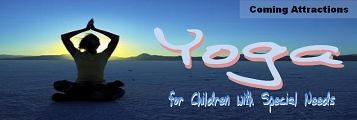
เพราะหนทางข้างหน้านั้น... มีเธอ
 โครงการเดีกพิเศษ อนุบาล-ประถม 6 ศูนย์การศึกษาเฉพาะบุคคล "เพียงตะวัน เคียงเดือน" เปิดรับสมัครเด็กพิเศษเข้าเรียนในระดับชั้น อนุบาล - ประถม6 ทั้งแบบ "ไปเช้า-เย็นกลับ" และ "นักเรียนประจำ" สอบถามรายละเอียดเพิ่มเติม ได้ที่ 02-868-5973, 066-129 -9912
โครงการเดีกพิเศษ อนุบาล-ประถม 6 ศูนย์การศึกษาเฉพาะบุคคล "เพียงตะวัน เคียงเดือน" เปิดรับสมัครเด็กพิเศษเข้าเรียนในระดับชั้น อนุบาล - ประถม6 ทั้งแบบ "ไปเช้า-เย็นกลับ" และ "นักเรียนประจำ" สอบถามรายละเอียดเพิ่มเติม ได้ที่ 02-868-5973, 066-129 -9912

Future Schools...Holistic Education
Future Schools and Education for Peace as the Practice of Freedom:
Holistic Peace Education or 'Holistic Education'
HOLISTIC EDUCATION : A NEW PARADIGM FOR TEACHING
Holistic education is foundational to a culture of peace and true democracy because it is based on the correct understanding of the human personality or 'human nature'. The aim is to cultivate the human potential for creative intelligence.
Successful education is based on the understanding of human nature as a social nature. Human sociability depends on the social intelligence of moral consciousnessness or 'rational conscience'. Development of conscience depends on education for the development of the whole person as a moral or 'spiritual' and therefore rational or 'peaceful' human being i.e. 'holistic peace education' or 'holistic education'. Holistic education is meaningful education which involves the creation of opportunites for personal growth through learning. The result is the complete development of children into compassionate and responsible adults with a rational or 'peaceful' approach to the resolution of their human problems.
The only means to a world of peace and understanding is through the proper education of children into emotionally and intellectually mature and thinking adults, respectful and tolerant of other cultures." (Norman Goble. The Function of Teaching UNESCO Paris 1977)
The human species is a social species; the human organism is a social organism; and the human personality or 'human nature' is a moral or 'spiritual' nature with instincts for social responsibility or 'social instincts'. These must be developed through a complex process which results in the realisation of the human potential for moral consciousness or 'conscience'. Rational or 'mature' conscience is a function of moral or 'spiritual' freedom (freedom from dogma) and manifests as social intelligence required for peaceful cooperation... the product of moral or 'spiritual' development. If development is hindered, the result is irrational conscience and asocial behaviour. For this reason education for social responsibility or 'peace' i.e. 'peace education' is the same as education for human development i.e. 'holistic education'.
The paradigm of traditional education as 'schooling' is based on a basic mistrust of human nature - a mistrust which perpetuates suffering, oppression and destruction because it leads to the fallacious notion that the interests of the individual and those of society are mutually exclusive. This dichotomous view of the social reality inevitably results in unresolvable pseudo-problems which cannot be dealt with effectively unless they are approached from the more accurate perception of human nature as a social nature with natural instincts for sociability - the 'social instincts'. Consequently the needs of the individual and of the society are mutually dependent and interrelated. So what are the implications for education? In view of the fact that the development of a civilised society depends on fully developed or 'civilised' individuals, then the function of education is to provide the right conditions for the cultivation of human growth and development through facilitation of learning which is meaningful because it engages the person's instinctive motivation for growth i.e. 'intrinsic motivation'. Intrinsic motivation engages development of the spiritual dimension of the person as a whole. Human spirituality is a function of consciousness of moral values for living (lovingkindness, justice, beauty etc.)... core values of moral consciousness or 'morality' of rational conscience and the 'authentic self', 'higher self' or 'Self' . Rational conscience is the source of personal power... 'self-empowerment'... which is foundational to the ability to adapt to changing social conditions i.e 'adaptability'. Development of conscience depends on education which provides the optimal conditions for both cognitive and moral development of human potentialities... physical, psychological, emotional, intellectual and moral or 'spiritual' i.e. 'holistic education'. Holistic education involves the planning of learning environments in the context of human dignity manifested in meaningful creativity and productiveness or 'work'.
"Holistic education is more concerned with drawing forth the latent capacities and sensitivities of the soul than with stuffing passive young minds full of predigested information. It is an education that prepares young people to live purposefully, creatively, and morally in a complex world." (Ron Miller ed. The Renewal of Meaning in Education: Responses to the Cultural and Ecological Crisis of our Times)
Holistic education is natural education based on principles of human development. The human organism is a social organism which depends on the development of human potential for effective adaptation to changing environmental conditions (physical and social). Human 'adaptability' depends on complete development as a function of the integrated functioning of the human brain as a social brain specialised for understanding of the significance of experience i.e. 'experiential learning' or 'natural learning'. Natural learning is active learning of 'creative intelligence' and results in meaningful 'knowing' or 'knowledge' as 'real knowledge' or 'truth'. As a truth finding process natural learning engages the individual as an integrated whole incorporating the spiritual dimension and representing the human personality or 'human nature'. Human nature is a social nature and the human organism is a social being which can be characterised in terms of human motives for learning or 'human needs'. Human needs include the basic psychological needs for security and self-esteem ('ego needs') and the so-called 'higher' needs for psychological growth beyond the 'ego' level of consciousness or 'self-transcendance'. These are the spiritual needs or 'metaneeds'. Motivation by the metaneeds or 'metamotivation' engages growth through learning and development of human potential for 'self-actualisation'. Self-actualisation depends on education which provides conditions for self-empowerment or 'freedom' as 'freedom of thought' or 'inner freedom'... freedom for growth through learning, freedom from fear and conflict, freedom from dogma, freedom for personal development, freedom for a life which is guided by universal human values or 'virtues'... source of virtues is moral consciousness or 'conscience' as product of moral development and 'spiritual emergence'..
All problems in the world originate in our thinking. Therefore we need to open our minds and set ourselves free. Today there is urgent need for positive social change and this depends on the right kind of education... instead of the traditional authoritarian education for control of the individual we need a humane education for development of the individual as a complete and rational or 'moral' human being i.e. 'holistic education'. Holistic education aims for the development of moral consciousness or 'conscience' of 'morality' required for effective human socialisation or 'peace'. As peace education, holistic education depends on conditions of freedom in an environment which allows for development of moral intelligence or 'creative intelligence'. This depends on the practice of freedom to discover one's human potential as the source of self-control or 'self-empowerment' i.e. moral freedom, inner freedom or 'true freedom'. True freedom is responsible freedom because it is a function of the proper development of the moral or 'spiritual' dimension of the human personality or 'human nature'. Human nature is a social nature and the human organism is a social organism. Human instincts for socialisation depend for their development on education which allows for spiritual development or 'spiritual emergence'.
"In the most general terms, spiritual emergence can be defined as the movement of an individual to a more expanded way of being that involves enhanced emotional and psychosomatic health, greater freedom of personal choices, and a sense of deeper connection with other people, nature and the cosmos. An important part of this development is an increasing awareness of the spiritual dimension in one's life and in the universal scheme of things. Spiritual development is an innate evolutionary capacity of all human beings. It is a movement towards wholeness or 'holotropic state', the discovery of one's true potential." (Stanislav Grof)
For children growing up in the complex world of the 'global village' effective educational practice is based on an appropriate philosophical framework or 'paradigm' of educational theory based on the understanding of learning as a natural function of the human brain. Insights into the physiological mechanisms underlying the natural learning process i.e. 'biology of learning' provide evidence for the validity of education for personal development or 'holistic education'. Holistic education is based on respect for the instinctive motives for learning or 'human needs' which define the human personality or 'human nature'.
"For too long the inner world of children has been suppressed or denied, and this is a serious flaw in our educational thinking that holistic educators seek to remedy". (Kathleen Kesson, Critical Theory and Holistic Education: Carrying on the Conversation in Ron Miller (Ed.) The Renewal of Meaning in Education: Responses to the Cultural and Ecological Crisis of our Times Brandon, Vermont, USA: Holistic Education Press (1993).
The key to human development and schools for humanity is recognition of the psychological value of meaningful work which is crucial to development of moral consciousness or 'morality' of 'conscience'... a concern of 'moral science'. The morality of conscience is the source of guiding values or 'human values' required for accurate evaluation of changing environmental conditions, effective decision-making and behaviour which is adaptive because it is creative i.e. ‘creative intelligence’. The cultivation of creative intelligence depends on the freedom to engage in active experiential learning motivated by natural curiosity of inquiry. Such learning is meaningful because it engages the individual’s instinctive responsibility for their own growth and development. Meaningful learning for human development depends on freedom in education as the practice of theory which is informed and effective because it is based on natural law and guided by rational conscience. Freedom in education is responsible freedom because it aims to provide the right conditions required to free the human spirit in order to develop conscience as rational conscience or 'free conscience'... freedom to think, freedom to learn, freedom to engage in personal growth and development of one's human potential for creativity and productiveness or ‘work. Freedom in education is freedom from dogma, freeedom from ignorance, freedom from from conflict... 'inner freedom', 'spiritual freedom', 'moral freedom' or 'true freedom'. True freedom is obedience to rational conscience... a function of human development as 'moral development'. Freedom in education engages children's integrated development in harmony with their instinctive sense of responsibility for their own spiritual growth and development i.e. 'human nature'. Natural principles of human nature are foundational to education of the person as a whole or 'holistic education'. Holistic education is the practice of freedom for creativity and productivity or 'work'. Freedom to work is the basis for self-empowerment and self-determination which is foundational to understanding, to social responsibility for peace, cooperation and real democracy.
Critical thinking skills are developed naturally when children are educated in conditions of freedom for growth through learning.
The formulation of logical and reasonable educational theory is based on the fact that children are natural learners who can participate in the planning of learning environments which will foster their natural growth into mature and responsible adults living by universal human values. The function of education is to provide the conditions to free the human spirit in order to cultivate the intuition of natural human intelligence i.e. 'creative intelligence' . Educational theory based on natural law is rational theory which can be implemented as informed and effective practice guided by the 'morality' of developed conscience... moral practice or 'educational praxis'. Rational discourse of educational praxis depends on meaning of freedom as the awakening of true human intelligence or 'inner freedom'. Inner freedom based on natural biological principles is 'responsible freedom'. (The practice of theory which is not based on natural principles results in perception of false dichotomies and unresolvable 'pseudoproblems'). The aim of education, in the fullest and deepest sense of the word, is the integrated development of the person as a whole... variously known as 'free education', 'libertarian education', 'libratory education', 'progressive education', 'new education', 'open education', 'cosmic education', 'child-centered education', 'person-centered education', 'problem-centered education', 'humanistic education', 'humane education','integral education', 'integrative education', 'confluent education', 'peace education', 'transformative education', 'soul education', 'democratic education' and 'holistic education'. Holistic education is for development of rational conscience which is required for the mastery of life and respect for the lives of others... 'education for life'. All children have the right to educational experiences through which they can recognise the psychological value of their learning experiences... in building self-confidence, self-respect, creative intelligence and moral courage.
This philosophy is consistent with Article 26 paragraph 2 of the Universal Declaration of Human Rights "Education shall be directed to the full development of the human personality and to the strengthening of respect for human rights and human freedoms".
The 'paradigm' of holistic education has larger scope than the traditional paradigm with its view of the passive learner motivated by external factors... 'extrinsic 'motivation'... 'teacher as instructor'. In fact, the learner is an active participant who is motivated by internal factors which are understood and respected by the teacher as facilitator. Effective learning is a function of the learner's active engagement in a process of adaptation to the environment. Human adaptability is a function of the capacity to create meaning from experience or 'learn'. Natural 'experiential learning' is a function of the brain’s capacity for perception of connections between systems of wholes and the parts which make them up i.e. 'holistic perception'. Holistic perception actively engages the person as a whole in their instinctive striving for mature growth or 'self-actualisation'. Self-actualisation depends on natural education which engages the individual's sense of responsibility for their own growth i.e. 'intrinsic motivation'. Intrinsically motivated learning depends on the provision of conditions which integrate learning with life and allow for development of human potential and human empowerment as self-determination or 'freedom'. "Real freedom is a consequence of development; it is the consequence of latent guides, aided by education. It is the construction of the personality, reached by effort and one's own experiences; it is the long road which every child must take to reach maturity". (Maria Montessori)
Holistic education is 'humanistic' because it is true to the social nature of the human personality or 'human nature'. Human nature can be defined in terms of the evolutionary significance of freedom of thought or 'creative intelligence' and moral consciousness as moral reasoning of 'morality' or 'social intelligence'. Social intelligence is characterised by the 'social values' required for survival of the human species as a social species i.e. moral values or universal spiritual values - moral justice, compassionate wisdom, universal love, knowledge, understanding and social responsibility or 'peace' i.e. 'human values'. Human values are experienced as the moral freedom of 'self-transcendance' i.e. 'true freedom'. True freedom is freedom of self-empowerment or 'responsible freedom' which is fundamental to the integration of learning with life.
"The organization of human communities and the establishment of freedom and peace are not only intellectual achievements but spiritual and moral achievements as well, demanding a cherishing of the wholeness of the human personality." (Ivan Ilich, Deschooling Society)
In the paradigm of holistic education the role of the teacher is defined in terms of the 'facilitation of learning'. The teacher's function is to understand the psychological value of creativity and productiveness or 'work'... to facilitate the construction of conscience through development of human potential. The teacher is a 'facilitator of learning'. The facilitative teacher designs learning environments which are compatible with respect for the instinctive motives for human learning behaviour i.e. 'human needs'. Human needs include the 'lower' psychological needs for self-esteem- the 'ego needs' - and the 'higher' psychological needs for spiritual growth - the 'spiritual needs' or 'metaneeds'. Motivation by the metaneeds is 'metamotivation'. Metamotivation engages personal development in terms of all the interrelated aspects of the complete human personality - physical, emotional, intellectual, psychological, social, political, creative, artistic, philosophical and spiritual i.e. 'holistic growth'.
"The highest function of education is to bring about an integrated individual who is capable of dealing with life as a whole." (Jiddu Krishnamurti Education and the Significance of Life)
Holistic education is education for human development and therefore education with conscience... education for responsible freedom or 'self-empowerment' as the pre-condition for creative and effective adaptation to changes in the social environment i. e. 'adaptability'. Human adaptability depends on 'true freedom'... the freedom to interact with the environment... to inquire, to discover, to think... to make personal meaning of experience or 'learn', the freedom to understand the realities of nature and human nature while attaining the highest levels of awareness or 'self-knowledge', the freedom to engage in meaningful creativity and productiveness or 'work'. Meaningful work is a function of curiosity, cognition and the wisdom of 'compassion'... engages development of 'moral consciousness' or 'conscience' - the human 'soul'. Holistic education aims to cultivate intelligence – not only mechanical intelligence of conditioned learning but also intuitive intelligence or creative intelligence which allows for social cooperation and the creation of humane societies i.e.'intuition'.
"Present-day Western materialist culture and schooling exaggerate the importance of the physical at the expense of the spiritual and thus tend to suffocate individual initiative and personal responsibility in favour of docile compliance with external authority vested in ever-larger political bureaucracies. This de-humanising trend can be reversed only by the voluntary combination of well-balanced individuals who have taken the trouble to explore their own potential and are ready to live freely in harmony with natural law rather than as slaves to a political system". ( www.ardue.org)
"Never doubt that a small group of thoughtful, committed citizens can change the world. Indeed, it is the only thing that ever has". (Margaret Mead)
from: http://www.holisticeducator.com/
บ้านนี้จะมีความงามได้... ถ้ามีเธอ
|
|
ดอกไม้ที่หลากสี... กิจกรรมที่หลากหลาย
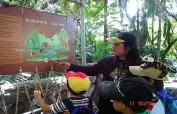



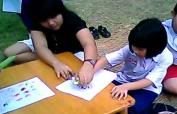
"ที่เพียงตะวันฯ มีที่ว่างเสมอสำหรับเด็กทุกคน..."

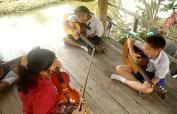
ประเด็นถัดมา หากพิจารณาในแง่ผัสสะที่นำไปสู่การรับรู้ (Sensation and Perception) อาจกล่าวได้ว่า คงไม่มีสิ่งใดเข้าถึงพวกเขาได้ดีกว่าดนตรีอีกแล้ว เพราะมิใช่แค่เพียงเสียงที่ได้ยิน แต่ลุ่มลึกหยั่งลงไปถึงจิตวิญญาณ เพราะเหตุนี้ ดนตรีบำบัด (Music therapy) จึงถูกนำมาใช้กันอย่างแพร่หลาย ดนตรีมีผลต่อการเปลี่ยนแปลงของร่างกาย จิตใจ และการทำงานของสมองในหลาย ๆ ด้าน ทั้งเรื่อง อัตราการหายใจ อัตราการเต้นของชีพจร ความดันโลหิต การตอบสนองของม่านตา ความตึงตัวของกล้ามเนื้อ และการไหลเวียนของเลือด จึงช่วยในการบำบัดรักษาโรคภัยไข้เจ็บทั้งร่างกายและจิตใจ นอกจากนี้ยังช่วยปรับสภาพจิตใจ ให้อยู่ในสภาวะสมดุล มีมุมมองในเชิงบวก ผ่อนคลายความตึงเครียด ลดความวิตกกังวล กระตุ้น เสริมสร้าง และพัฒนาทักษะการเรียนรู้ และความจำ กระตุ้นประสาทสัมผัส การรับรู้ เสริมสร้างสมาธิ พัฒนาทักษะสังคม พัฒนาทักษะการสื่อสารและการใช้ภาษา พัฒนาทักษะการเคลื่อนไหว ลดความตึงตัว ของกล้ามเนื้อ และช่วยเสริมในกระบวนการบำบัดทางจิตเวช ทั้งในด้านการประเมินความรู้สึก การควบคุมตนเอง การแก้ปมขัดแย้งต่าง ๆ และการสร้างเสริมอารมณ์เชิงบวก ที่บ้านเพียงตะวันฯ เราใช้เสียงดนตรีอะคลูสติดเป็นส่วนหนึ่งในการดำเนินงานกิจกรรมบำบัด
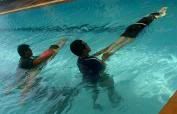
วารีบำบัด ในรูปแบบของการจัดกิจกรรมกลุ่มในสระว่ายน้ำสำหรับเด็กพิเศษโดยเฉพาะ จะช่วยส่งเสริมพัฒนาการทางด้านร่างกาย ช่วยให้ระบบประสาทที่ทำหน้าที่ควบคุมการเคลื่อนไหวมีประสิทธิภาพมากขึ้น มีการประสานงานที่ดีขึ้น เพิ่มความแข็งแรงของกล้ามเนื้อที่อ่อนแอ อาศัยประโยชน์จากภาวะของน้ำที่จะช่วยพยุงน้ำหนักของส่วนต่างๆ ของร่างกายเอาไว้นำมาขยายขอบเขตของการออกกำลังกายให้มากยิ่งขึ้น ช่วยฟื้นฟูระบบทางเดินหายใจ รวมถึงยังเป็นการช่วยส่งเสริมพัฒนาการทางด้านอื่นๆ เช่น การบำบัดด้านสมาธิและความสนใจ (Attention Deficit Problem) ตลอดจนการจัดกิจกรรมบำบัดสำหรับกลุ่มย่อย (Treatment for children with joint problems) อีกทั้งเด็กๆ ยังได้มีโอกาสฝึกหัดว่ายน้ำอีกด้วย
ส่วนอาชาบำบัด ได้ถูกนำมาใช้เพื่อการบำบัดเด็กพิเศษ ทั้งทางด้านกายภาพ ซึ่งได้แก่ปัญหาต่างๆ เกี่ยวกับระบบการเคลื่อนไหว การทรงตัว ความสมมาตรของร่างกาย ระบบประสาท และกล้ามเนื้อ รวมถึงด้านจิตใจ อารมณ์และพฤติกรรมต่างๆ อีกด้วย
"...เมื่อใดก็ตามที่พวกเด็กๆ อยู่บนหลังม้า ด้วยสัญชาตญาณแห่งการเอาตัวรอดของมนุษย์ จะนำพาพวกเขาให้ใช้ศักยภาพทั้งหมดที่มีเพื่อปรับตนเอง ระบบและกลไกทางกายภาพทั้งหมดจะต้องถูกควบคุม และดำเนินการภายใต้การสั่งการผู้เป็นเจ้าของร่าง สมดุลและสมมาตรต้องมีให้ได้ พลังงานทั้งหมดจะต้องถูกนำมาใช้ เพียงเพื่อให้ทรงตัวอยู่รอด มิให้ตกจากหลังม้า พวกเขารู้ว่าหากเกรี้ยวกราด เอาแต่ใจตนเองดั่งที่เคย อาจทำให้ม้าไม่พอใจ และพวกเขารู้อีกว่า หากพวกเขาว็อกแวก ไม่สามารถควบคุมตัวเองได้ ขาดสติกำกับตน หรือสมาธิสั้นเกินกว่าจะรับมือกับภารกิจนี้ อาจทำให้หายนะบังเกิด ดังนั้นในภาวะขับขันเช่นนี้ ไม่ว่าต่อมอะตรีนาลีนจะถูกกระตุ้นให้ทำงานเต็มพิกัดหรือไม่ พวกเขารู้แต่เพียงว่า พวกเขาต้องเป็นฝ่ายชนะเท่านั้น!..."
และท้ายที่สุด พวกพวกเขายังเรียนรู้ถึงการแบ่งปันความรักและความรู้สึกที่ดีให้กับม้า สัตว์ที่มีความฉลาดเป็นอย่างยิ่ง เด็กที่ก้าวร้าวกลับอ่อนโยนขึ้น จิตใจได้ถูกหล่อหลอมกล่อมเกลาโดยไม่รู้ตัวในขณะที่พวกเขาลูบสัมผัสม้า ไม่นานนักพวกเขาก็สามารถหยั่งถึงความรู้สึกแห่งความโอบอ้อมอารีที่พึงมีได้ในจิตใจที่ละเอียดอ่อน
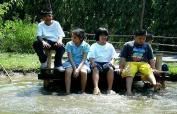
ที่บ้านเพียงตะวันฯ ให้ความสำคัญและพยายามที่จะปลูกฝัง "สำนึกแห่งความเป็นเพื่อน" (Sense of Friendship) ให้เกิดขึ้นกับเด็กๆ ทุกคน กิจกรรมหลายๆ อย่างที่ถูกจัดขึ้นได้ถูกสอดแทรกเรื่องราวเหล่านี้หลอมรวมเข้าไว้อยู่เสมอ มิใช่เพียงเพราะว่านี่คือส่วนหนึ่งของการส่งเสริมทักษะทางสังคม หรือการจัดเตรียมเครือข่ายให้พวกเขาในอนาคตเท่านั้น แต่เรารู้ว่านี่คือ กุญแจไขปริศนา อันนำไปสู่แสงสว่างที่ปลายอุโมงค์
สมดุลแห่งชีวิต... สมดุลแห่งการบำบัดที่บ้านเพียงตะวันฯ
ที่บ้านเพียงตะวันฯ เราใช้หลักการจัดกิจกรรมบำบัดในรูปแบบองค์รวม ที่คำนึงถึงความสมดุลของสุขภาวะทั้งสาม คือ กาย ใจ และจิตวิญญาณ (Physical/Metal/Spiritual Well-Being) อันนำไปสู่สภาวะสมดุลแห่งชีวิต ที่มนุษย์สามารถดำรงชีพและดำเนินชีวิตในสังคมได้อย่างสงบศานติสุข

ร่างกาย (Body)
สุขภาวะทางกาย เป็นภาวะที่มนุษย์รับรู้และสามารถดำรงตนให้มีสุขภาพร่างกายที่สมบูรณ์แข็งแรง ระบบต่างๆ รวมทั้งอวัยวะทั้งหมดทั้งองคาพยพทำงานสอดประสานกันอย่างถูกต้องเป็นปกติสุข ผัสสะนำมาซึ่งการรับที่ถูกต้องไม่บิดเบือน อโรคยาคือปราศจากโรคภัยไข้เจ็บ อีกทั้งมีวิถีการดำเนินชีวิตที่สอดคล้อง กลมกลืน และเหมาะสมกับบริบทของตน คือ เพศ วัย สภาพร่างกาย และสภาพแวดล้อม

จิตใจ (Mind)
สุขภาวะทางจิตใจ เป็นภาวะที่มนุษย์มีสภาพจิตใจที่ดีงาม หนักแน่น มีอารมณ์ที่มั่นคง สามารถควบคุมได้ เพราะมีสติกำกับตนอยู่เสมอ จิตใจเปี่ยมไปด้วยปีติ คือความอิ่มเอิมใจ ความดื่มด่ำที่หยั่งลึกลงถึงก้นบึ้งของหัวใจ มีความเบิกบานเป็นอย่างยิ่ง มีความสงบเย็นเป็นที่สุด ที่เป็นเช่นนี้เพราะจิตได้รับการฝึกฝนมาอย่างถูกต้อง ได้รับการพัฒนาอย่างเป็นขั้นเป็นตอนตามลำดับ สามารถดำเนินชีวิตได้อย่างมีความสุข

จิตวิญญาณ (Spirit)
สุขภาวะทางจิตวิญญาณ เป็นมิติที่สูงส่งของจิต กล่าวคือ มีจิตใจที่สูงขึ้น ละเอียดปราณีตขึ้น โน้มนำไปในทางที่ดีงามเป็นศิริ เป็นมงคล เป็นภาวะที่จิตสามารถเข้าถึงสิ่งสูงสุด ในทางพุทธหมายถึงปัญญา จิตวิญญาณสูงทำให้มีสุขภาวะ (Well being) จิตใจผ่อนคลาย เป็นอิสระท่ามกลางปัญหาและความวุ่นวาย แต่ยังคงความสงบ ความสุข ตลอดทั้งร่างกายและจิตใจ
ต่างคนเติมใจให้กัน... จนเต็ม
เพลง: เติมใจให้กัน คำร้อง/ทำนอง: ศุ บุญเลี้ยง/สินนภา สารสาส ร้อง: ก้อง สหรัฐ สังคปรีชา
|
อยู่ไกลกัน เกินครึ่งฟ้า
จะโยงใย ความสัมพันธ์
ต่อเติม แรงใจเมื่อท้อ
ต่างคน เติมใจให้กัน
|
หากยังมีใจถึงกัน
จนมาพบกันใกล้ตา
แบ่งปันในยามทุกข์ตรม...ไม่หวั่น
เติมใจซึ่งกัน...จนเต็ม
|
Kseniya Simonova's Amazing Sand Drawing
คำขวัญ... ขวัญเจ้ามาสู่เรือนตน

คือฉัน...คือเธอ
คือพี่...คือน้อง
คือผองเพื่อน...ที่ผูกพัน
หนึ่งในบรรดาคำถามคลาสสิคมากที่สุดในทางอภิปรัชญา ก็คือ "ฉันคือใคร? ฉันเหมือนหรือแตกต่างจากผู้อื่นตรงไหน?" นี่คือรากเหง้าแห่งวิถีความคิดของ "เพียงตะวันฯ" ที่ใช้ในการก่อร่างสร้าง "วัฒนธรรมบ้านเพียงตะวันฯ" ซึ่งทุกๆ คนตระหนักและยอมรับในเรื่องความเป็นปัจเจกของแต่ละบุคคล ความแตกต่างของผู้อื่นที่ไม่เหมือนกับตน การอยู่รวมกันอย่างพึ่งพิง ทุกคนช่วยกันทักทอเป็นโครงข่ายโยงใยความสัมพันธ์ซึ่งกันและกัน มิใช่เพียงแค่วันนี้แต่หมายรวมไปถึงความผูกพันในวันข้างหน้าสืบไป...
